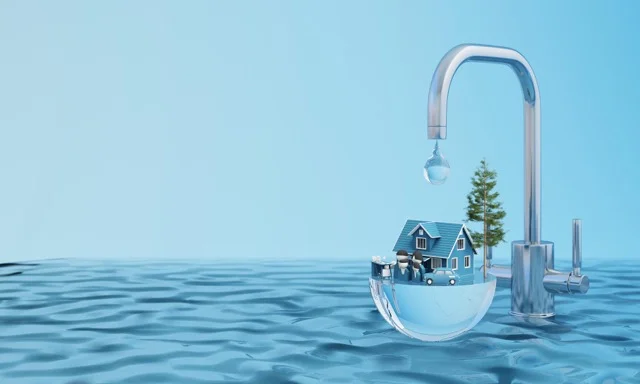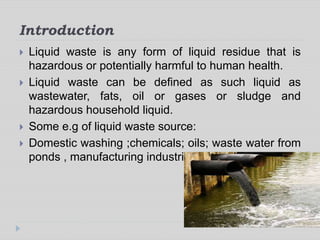What Does Reclaim Waste Mean?
What Does Reclaim Waste Mean?
Blog Article
Little Known Questions About Reclaim Waste.
Table of Contents4 Easy Facts About Reclaim Waste Explained3 Easy Facts About Reclaim Waste ExplainedNot known Factual Statements About Reclaim Waste The 9-Minute Rule for Reclaim WasteThe smart Trick of Reclaim Waste That Nobody is Discussing
Check out the types, events, and types of fluid waste. Domestic sewer waste describes the waste and products from a domestic sewage-disposal tank. This kind of waste is created by people in houses, colleges, and various other structures. This only includes sewage-disposal tanks that have a drainpipe field. The proper administration and disposal of residential sewage waste call for liquid waste to be transferred to a sewage treatment plant where the proper methods and tools are applied to cleanse and throw away waste.
Commercial waste typically consists of potential dangers, such as combustible products or a mix of fluid and strong waste items, and needs an extra innovative and comprehensive disposal procedure. The disposal of industrial waste normally involves the purification of waste before transportation to guarantee safe and proper disposal. Hazardous waste is created from by-products and drainage of commercial processes and production.
This sort of waste can not use the same sewer monitoring transport or procedures as septic or business fluids. The hazardous waste management procedure requires the evaluation and screening of liquid waste before it undertakes the disposal process (liquid waste removal melbourne). Drainage waste is the fluid waste that originates from overflow and excess stormwater in highly populated locations or cities
Drainage waste can trigger contamination and flooding if not dealt with appropriately. Making certain appropriate waste management can protect against catastrophes and reduce ecological harm.
10 Simple Techniques For Reclaim Waste
Get in touch with PROS Providers today to discover our waste administration and disposal solutions and the correct methods to care for the liquid waste you generate.
(https://profile.hatena.ne.jp/reclaimwaste1/)This supposed 'wastewater' is not just an important resource however, after treatment, will be released to our land, rivers or the sea. Utilized water from commodes, showers, bathrooms, kitchen area sinks, washings and commercial processes is recognized as wastewater.

water utilized to cool down machinery or tidy plant and tools). Stormwater, a type of wastewater, is drainage that flows from agricultural and city areas such as roof coverings, parks, gardens, roads, courses and rain gutters right into stormwater drains, after rainfall. Stormwater streams neglected straight to local creeks or rivers, ultimately getting to the sea.
Reclaim Waste Can Be Fun For Anyone
In Queensland, most wastewater is treated at sewer therapy plants. Wastewater is transferred from domestic or industrial sites via a system of sewers and pump terminals, recognized as sewage reticulation, to a sewer therapy plant. City governments construct, keep and run most sewage therapy plants. Operators are certified under the Environmental Defense Act 1994 to release cured wastewater at an acceptable environmental standard into rivers.
The Division of Natural Resources encourages city governments concerning handling, operating and maintaining sewage systems and therapy plants. In unsewered areas, city governments may require owners to set up private or household sewer treatment systems to deal with residential wastewater from toilets, kitchens, washrooms and washings. The Department of Natural Resources authorizes the usage of family systems when they are shown to be effective.
The majority of stormwater obtains no therapy. In some new communities, therapy of some stormwater to eliminate trash, sand and crushed rock has started using gross toxin traps. Wastewater therapy occurs in 4 stages: Gets rid of solid issue. Bigger solids, such as plastics and other things incorrectly released to drains, are removed when wastewater is gone through screens.
Utilizes tiny living microorganisms understands as micro-organisms to break down and get rid of remaining liquified wastes and fine particles. Micro-organisms and wastes are included in the sludge.
Our Reclaim Waste Statements
Nutrient removal is not offered at all sewage treatment plants due to the fact that it needs pricey specialised devices. Clear liquid effluent generated after therapy might still have disease-causing micro-organisms - liquid waste removal.

This usually means wastewater needs to be treated or contaminants removed prior to it can be discharged to rivers. A lot of wastewater streams right into the sewage system. Under the Act, city governments provide approvals and licences for environmentally appropriate tasks (Ages) involving wastewater launches that may have a neighborhood effect. The department carries out approvals and permits to explanation ERAs entailing wastewater releases that may have a regional or statewide effect.
Excitement About Reclaim Waste
Surveillance provides factual info concerning water quality and can confirm that licence conditions are being met. The information acquired with monitoring offers the basis for making water high quality decisions.
Report this page